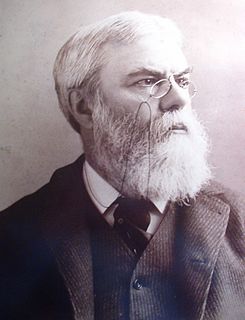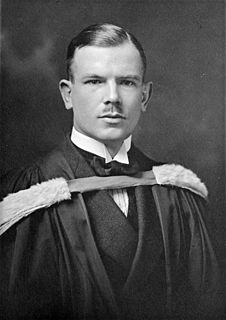A Quote by Justin Winsor
Hardly a name in profane history is more august than his. Hardly another character in the world's record has made so little of its opportunities. His discovery was a blunder; his blunder was a new world; the New World is his monument.
Related Quotes
I feel this way about it. World trade means world peace and consequently the World Trade Center buildings in New York ... had a bigger purpose than just to provide room for tenants. The World Trade Center is a living symbol of man's dedication to world peace ... beyond the compelling need to make this a monument to world peace, the World Trade Center should, because of its importance, become a representation of man's belief in humanity, his need for individual dignity, his beliefs in the cooperation of men, and through cooperation, his ability to find greatness.
The master in the art of living makes little distinction between his work and his play, his labor and his leisure, his mind and his body, his information and his recreation, his love and his religion. He hardly knows which is which. He simply pursues his vision of excellence at whatever he does, leaving others to decide whether he is working or playing. To him he's always doing both.
Do what he will, he [the profane man] is an inheritor. He cannot utterly abolish his past, since he himself is a product of his past. He forms himself by a series of denials and refusals, but he continues to be haunted by the realities that he has refused and denied. To acquire a world of his own, he has desacralized the world in which his ancestors lived; but to do so he has been obliged to adopt an earlier type of behavior, and that behavior is still emotionally present in him, in one form or another, ready to be reactualized in his deepest being.
In His discourses, His miracles, His parables, His sufferings, His resurrection, He gradually raises the pedestal of His humanity before the world, but under a cover, until the shaft reaches from the grave to the heavens, whenHe lifts the curtain, and displays the figure of a man on a throne, for the worship of the universe; and clothing His church with His own power, He authorizes it to baptize and to preach remission of sins in His own name.
A cultured society that has fallen away from its religious traditions expects more from art than the aesthetic consciousness and the 'standpoint of art' can deliver. The Romantic desire for a new mythology... gives the artist and his task in the world the consciousness of a new consecration. He is something like a 'secular saviour' for his creations are expected to achieve on a small scale the propitiation of disaster for which an unsaved world hopes.
Physiologically, man in the normal use of technology (or his variously extended body) is perpetually modified by it and in turn finds ever new ways of modifying his technology. Man becomes, as it were, the sex organs of the machine world, as the bee of the plant world, enabling it to fecundate and to evolve ever new forms. The machine world reciprocates man's love by expediting his wishes and desires, namely, in providing him with wealth.






































